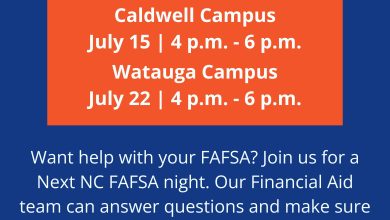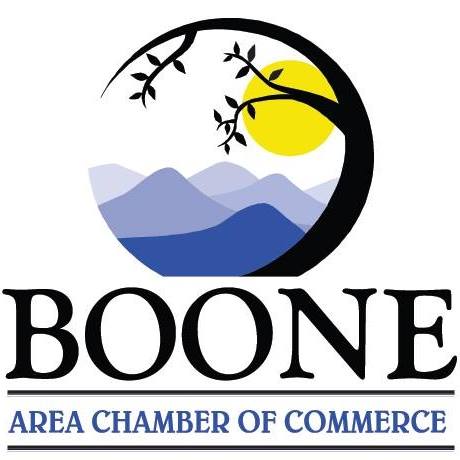
Last Updated on March 20, 2021 6:22 pm
The rash of scam phone calls to area residents continues as another warning comes from law enforcement.
Sheriff Len Hagaman tells WataugaOnline.com that in this latest round of calls the caller is posing as a Fire Inspector or Fire Marshal or OSHA (Occupational Safety and Health Administration) Inspector or from the FBI.
In one instance, a victim received a call from a male claiming to be with the FBI and alleged the victim’s credit card had been used to buy drugs in south Texas and was asking for personal information. The victim did provide some information prior to hanging up.
During another one of these scam calls a local victim lost over $1400.
This is the latest round of these types of calls taking place. Below is a recap of previous warnings from Sheriff Hagaman and linked to previous articles on WataugaOnline.com
The Federal Trade Commission provides this guidance on how to recognize a phone scam.
How to Recognize a Phone Scam
Phone scams come in many forms, but they tend to make similar promises and threats, or ask you to pay certain ways. Here’s how to recognize a phone scam.
There is no prize
The caller might say you were “selected” for an offer or that you’ve won a lottery. But if you have to pay to get the prize, it's not a prize.
You won’t be arrested
Scammers might pretend to be law enforcement or a federal agency. They might say you’ll be arrested, fined, or deported if you don’t pay taxes or some other debt right away. The goal is to scare you into paying. But real law enforcement and federal agencies won’t call and threaten you.
You don’t need to decide now
Most legitimate businesses will give you time to think their offer over and get written information about it before asking you to commit. Take your time. Don’t get pressured into making a decision on the spot.
There’s never a good reason to send cash or pay with a gift card
Scammers will often ask you to pay in a way that makes it hard for you to get your money back — by wiring money, putting money on a gift card, prepaid card or cash reload card, or using a money transfer app. Anyone who asks you to pay that way is a scammer.
Government agencies aren’t calling to confirm your sensitive information
It’s never a good idea to give out sensitive information like your Social Security number to someone who calls you unexpectedly, even if they say they’re with the Social Security Administration or IRS.
You shouldn’t be getting all those calls
If a company is selling something, it needs your written permission to call you with a robocall. And if you’re on the National Do Not Call Registry, you shouldn’t get live sales calls from companies you haven’t done business with before. Those calls are illegal. If someone is already breaking the law calling you, there’s a good chance it’s a scam. At the very least, it’s a company you don’t want to do business with.
Examples of Common Phone Scams
Any scam can happen over the phone. But here are some common angles phone scammers like to use:
Imposter scams
A scammer pretends to be someone you trust — a government agency like the Social Security Administration or the IRS, a family member, a love interest, or someone claiming there’s a problem with your computer. The scammer can even have a fake name or number show up on your caller ID to convince you.
Debt relief and credit repair scams
Scammers will offer to lower your credit card interest rates, fix your credit, or get your student loans forgiven if you pay their company a fee first. But you could end up losing your money and ruining your credit.
Business and investment scams
Callers might promise to help you start your own business and give you business coaching, or guarantee big profits from an investment. Don’t take their word for it. Learn about the FTC’s Business Opportunity Rule, and check out investment opportunities with your state securities regulator.
Charity scams
Scammers like to pose as charities. Scams requesting donations for disaster relief efforts are especially common on the phone. Always check out a charity before you give, and don’t feel pressured to give immediately over the phone before you do.
Extended car warranties
Scammers find out what kind of car you drive and when you bought it so they can urge you to buy overpriced — or worthless — service contracts.
“Free” trials
A caller might promise a free trial but then sign you up for products — sometimes lots of products — that you’re billed for every month until you cancel.
Loan scams
Loan scams include advance fee loan scams, where scammers target people with a poor credit history and guarantee loans or credit cards for an up-front fee. Legitimate lenders don’t make guarantees like that, especially if you have bad credit, no credit, or a bankruptcy.
Prize and lottery scams
In a typical prize scam, the caller will say you’ve won a prize, but then say you need to pay a registration or shipping fee to get it. But after you pay, you find out there is no prize.
Travel scams and timeshare scams
Scammers promise free or low cost vacations that can end up costing you a lot in hidden costs. And sometimes, after you pay, you find out there is no vacation. In timeshare resale scams, scammers lie and tell you they’ll sell your timeshare — and may even have a buyer lined up — if you pay them first.
How to Stop Calls from Scammers
Hang up
Even if it’s not a scammer calling, if a company is calling you illegally, it’s not a company you want to do business with. When you get a robocall, don't press any numbers. Instead of letting you speak to a live operator or remove you from their call list, it might lead to more robocalls.
Consider call blocking or call labeling
Scammers can use the internet to make calls from all over the world. They don’t care if you’re on the National Do Not Call Registry. That’s why your best defense against unwanted calls is call blocking. Which type of call-blocking (or call-labeling) technology you use will depend on the phone — whether it’s a mobile phone, a traditional landline, or a home phone that makes calls over the internet (VoIP). See what services your phone carrier offers, and look online for expert reviews. For mobile phones, you also can check out the reviews for different call-blocking apps in your online app store.
Don’t trust your caller ID
Scammers can make any name or number show up on your caller ID. That’s called spoofing. So even if it looks like it’s a government agency like the Social Security Administration calling, or like the call is from a local number, it could be a scammer calling from anywhere in the world.
Learn more about unwanted calls and what to do about them at ftc.gov/calls.
What to Do If You Already Paid a Scammer
Scammers often ask you to pay in ways that make it tough to get your money back. If you’ve paid a scammer, the sooner you act, the better.
If you paid a scammer with a credit or debit card,you may be able to stop the transaction. Contact your credit card company or bank right away. Tell them what happened, and ask for a “chargeback” to reverse the charges.
If you paid a scammer with a gift card, prepaid card, or cash reload card, contact the company that issued the card right away. Tell them you paid a scammer with the card, and ask if they can refund your money. The sooner you contact them, the better the chance they’ll be able to get your money back.
If you paid a scammer with a wire transfer, call the money transfer company immediately to report the fraud and file a complaint. Call the complaint department:
- MoneyGram at 1-800-MONEYGRAM (1-800-666-3947) or
- Western Union at 1-800-325-6000.
Ask for the money transfer to be reversed. It’s unlikely to happen, but it’s important to ask.
If you paid a scammer using a money transfer app, contact the company behind the app. If the app is linked to a credit card or debit card, contact your credit card company or bank first.
If you gave a scammer remote access to your computer, update your computer’s security software. Then run a scan and delete anything it identifies as a problem.
If you gave your username and password to a scammer, change your password right away. If you use the same password for other accounts or sites, change it there, too. Create a new password that is strong.
If you gave a scammer your Social Security number (SSN), visit identitytheft.gov to learn how to monitor your credit report to see if your SSN is being misused.
If someone calls and offers to “help” you recover money you have already lost, don’t give them money or personal information. You’re probably dealing with a fake refund scam.
Report Phone Scams
If you’ve lost money to a phone scam or have information about the company or scammer who called you, report it at ftc.gov/complaint.
If you didn’t lose money and just want to report a call, you can use our streamlined reporting form at donotcall.gov.
Report the number that appears on your caller ID — even if you think it might be fake — and any number you’re told to call back. The FTC analyzes complaint data and trends to identify illegal callers based on calling patterns. We also use additional information you report, like any names or numbers you’re told to call back, to track down scammers.
We take the phone numbers you report and release them to the public each business day. This helps phone carriers and other partners that are working on call-blocking and call-labeling solutions. Your reports also help law enforcement identify the people behind illegal calls.
















